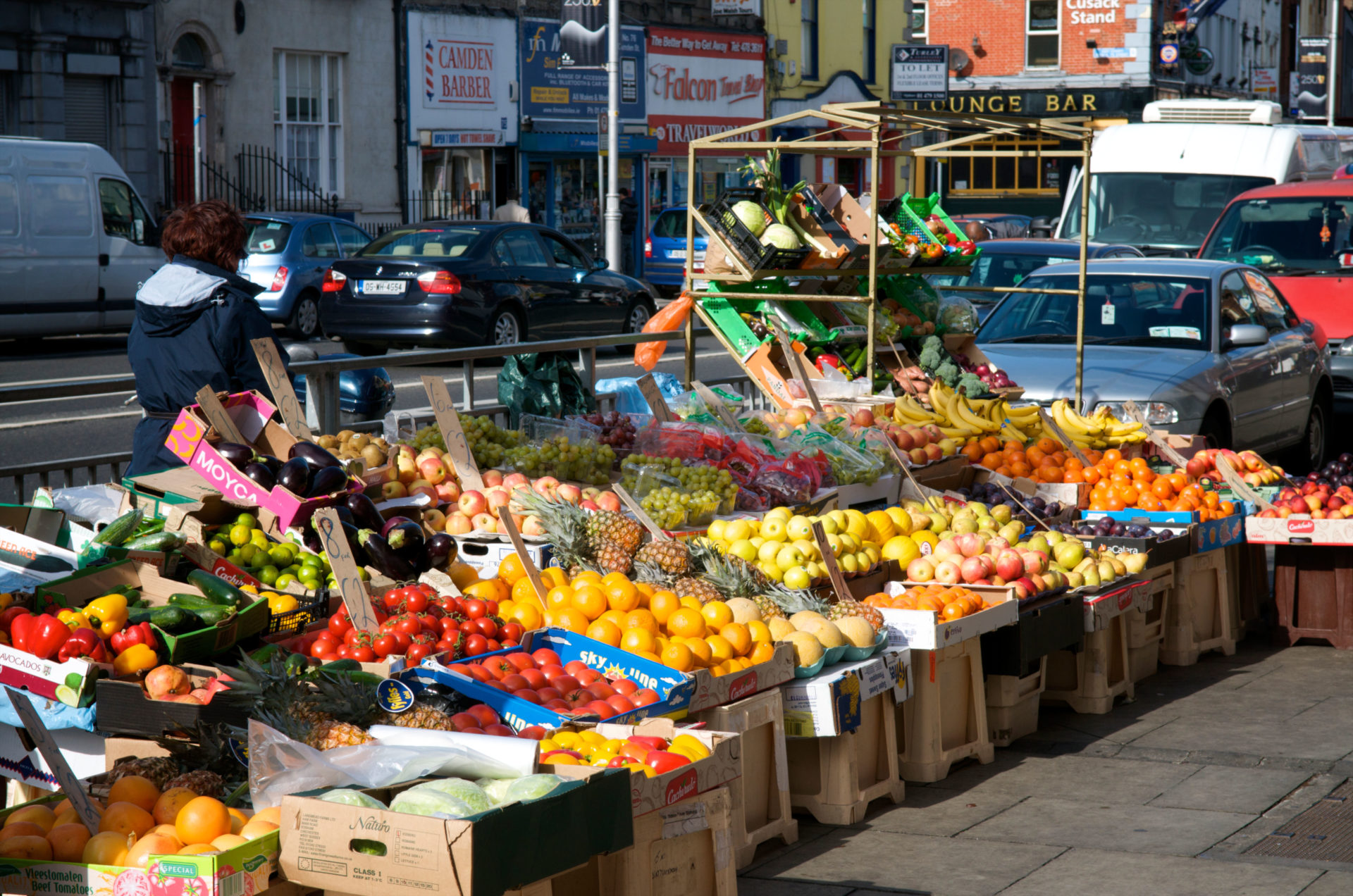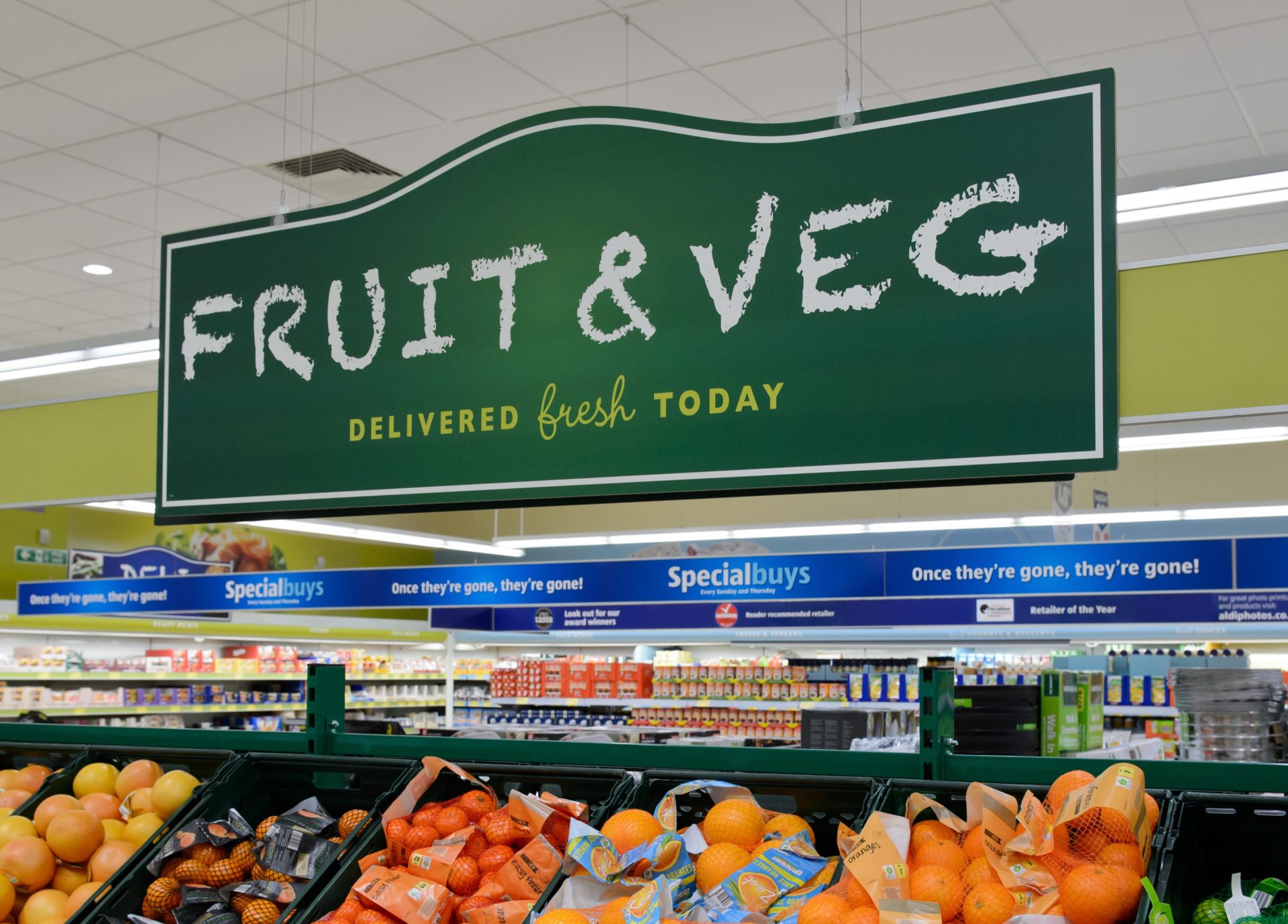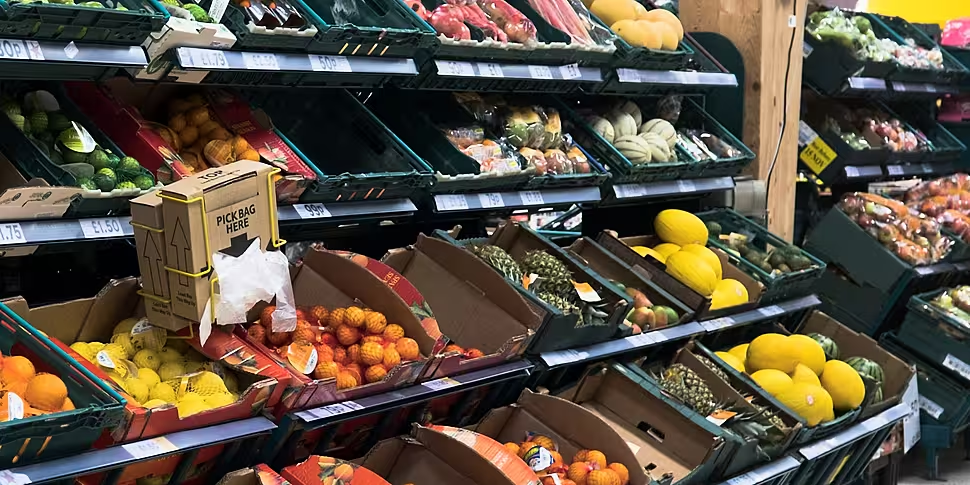Climate change is partially to blame for the surging cost of food, Sinead Ryan has argued.
According to data from Kantar published last month, food inflation has hit 5% - significantly higher than 1.4% recorded in the economy overall.
On Lunchtime Live, consumer expert Sinead Ryan said there is “no denying” that prices have gone up significantly in the grocery sector.
“After the COVID years when the cost of living crisis hit, the price of oil increased, all that started going up and up and up,” she said.
“It seemed to level out and here we are again with galloping inflation.”
Ms Ryan continued that a rate of 5% is a “shocking increase”.
“It’s adding €400 a year to the family grocery shop,” she said.
“At the moment, we’re paying more for lots of things and it’s really, really felt in householders’ pockets.”
 A fruit and veg market stall on Camden Street in Dublin. Picture by: Alamy.com.
A fruit and veg market stall on Camden Street in Dublin. Picture by: Alamy.com.One factor driving the increase is climate change, which is making it difficult to grow many of Ireland’s favourite foods.
“These are typical products we can’t grow in Ireland - they have to be imported,” Ms Ryan explained.
“Coffee is certainly one of them; olive oil has absolutely shot up because the crops in the countryside in Spain, Italy and Greece that produce that have been hugely affected by climate change.”
 Fresh Fruit and Veg display in a supermarket. Picture by: Simon Hadley / Alamy Stock Photo
Fresh Fruit and Veg display in a supermarket. Picture by: Simon Hadley / Alamy Stock PhotoMs Ryan added that this is “not going to change” any time soon.
“It’s crops that require sunny temperatures but not too hot,” she said.
“We’re seeing across Europe, temperatures are out of control.
“And that is absolutely going to impact [prices] when you add in things like the transport costs, the price of heating and lighting supermarkets.
“All that has an impact on creating these price increases.”
The European Central Bank has forecast that inflation across the eurozone will be 2.3% this year and fall to 1.9% in 2026.
Main image: Fruit on display in a Tesco supermarket. Picture by: Doug Houghton / Alamy Stock Photo









